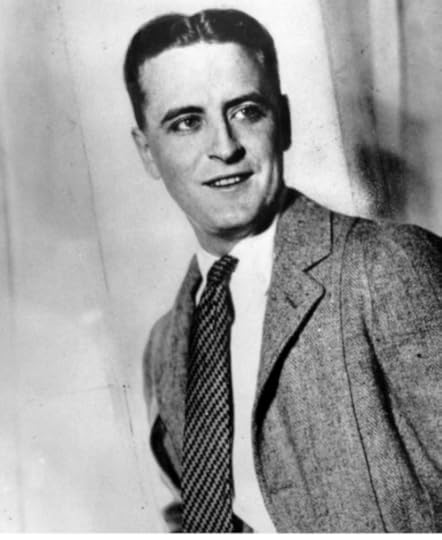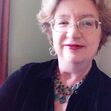An “interview” with F. Scott Fitzgerald

By Libby Sternberg
What if F. Scott Fitzgerald could reflect on The Great Gatsby a century after its publication? This imagined Q&A presents his responses using his own words.*
1. Your short stories were your bread and butter for a long time, yet you wrote your editor, Max Perkins, that in Gatsby you wanted “something new….something extraordinary and beautiful and simple and intricately patterned.” Did you not think your short stories were extraordinary and beautiful?
Something was making me nibble at the edge of stale ideas…
2. So you weren’t proud of them?
Well, it was as if my sturdy physical egotism no longer nourished my peremptory heart.
3. You were living in New York and Long Island when you wrote most of Gatsby, and at times it seems as if you had a palpable love for the city then. True?
The city seen from the Queensboro Bridge is always the city seen for the first time, in its first wild promise of all the mystery and the beauty of the world….We drove over to Fifth Avenue, so warm and soft, almost pastoral…that I wouldn’t have been surprised to see a great flock of white sheep turn the corner…Over the great bridge, with the sunlight through the girders making a constant flicker upon the moving cars, with the city rising up across the river in white heaps and sugar lumps, all built with a wish out of non-olfactory money.
4. There’s a sense in Gatsby that, in Nick’s narration, he is speaking for you, for your ability to be incredibly observant even as you participated in everything wonderful and horrible about the Jazz Age. How would you describe yourself?
As the casual watcher in the darkening streets…I was him too, looking up and wondering. I was within and without, simultaneously enchanted and repelled by the inexhaustible variety of life.
5. You wrote Gatsby, of course, after your marriage to Zelda, yet sometimes it sounds as if you are harkening back to your time in New York before she agreed to marry you. How would you describe that time?
I felt a haunting loneliness sometimes, and felt it in others—poor young clerks who loitered in front of windows waiting until was time for a solitary restaurant dinner—young clerks in the dusk, wasting the most poignant moments of night and life…At eight o’clock, when the dark lanes of the forties were lined five deep with throbbing taxicabs, for the theater district, I felt a sinking in my heart. Forms leaned together in the taxis as they waited, and voices sang, and there was laughter from unheard jokes, and lighted cigarettes outlined unintelligible gestures inside.
6. Like Gatsby, you didn’t give up on your love. Did this influence your story?
In life, there are only the pursued, the pursuing, the busy, and the tired.
7. So…are you Gatsby?
The truth was that Jay Gatsby of West Egg, Long Island, sprang from the Platonic conception of himself. He was a son of God—a phrase which, if it means anything, means just that—and he must be about His Father’s business, the service of a vast, vulgar, and meretricious beauty. So I invented just the sort of Jay Gatsby that a seventeen-year-old boy would be likely to invent, and to this conception I was faithful to the end.
8. You grew up in the Midwest and talk about it a little in Gatsby. How did it influence your creation of the novel’s main characters?
My Middle-West—not the wheat or the prairies or the lost Swede towns, but the thrilling returning trains of my youth, and the street lamps and sleigh bells in the frosty dark and the shadows of holly wreaths thrown by lighted windows on the snow… I’m part of that, a little solemn with the feel of those long winters, a little complacent from growing up in a house in a city where dwellings are still called through decades by a family’s name. I see now that this has been a story of the West. After all, Tom and Gatsby, Daisy and Jordan and Nick, were all Westerners, and perhaps we possessed some deficiency in common which made us subtly unadaptable to Eastern life.
9. The Great Gatsby didn’t become a bestseller during your lifetime, but today is widely considered one of the greatest American novels. What do you think of the novels that were on the bestseller list the year Gatsby was published?
They’re a rotten crowd. Gatsby was worth the whole damn bunch put together.
10. Mr. Fitzgerald, thank you for this interview. And your frank answers.
I am one of the few honest people that I have ever known.
*All of Fitzgerald’s answers in this interview, with occasional pronoun changes, can be found in The Great Gatsby itself, specifically as follows:
1. Chapter One, Nick describing Gatsby
2. Chapter One, Nick still describing Gatsby
3. Chapter Four, Nick riding into NYC with Gatsby…Chapter Two, Nick in the city with Tom and Myrtle…Chapter Four, Nick riding into NYC with Gatsby
4. Chapter Two, Nick with Tom at Myrtle’s party
5. Chapter Three, Nick about his life in New York
6. Chapter Four, Nick’s thoughts as he, Daisy, Tom, and Jordan head home from Gatsby’s party, Nick’s arm around Jordan
7. Chapter Six, Nick on Gatsby’s history, starting life as James Gatz
8. Chapter Nine, near the end of novel, presented as Nick’s musings
9. Chapter Eight, Nick shouting to Gatsby as he heads home, shortly before Gatsby is killed
10. The end of Chapter Three, Nick talking about himself



